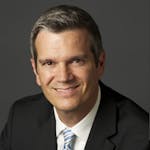When Americans think of the future, what do they care about?
Late last year, more than 1,000 Americans gathered throughout the country to discuss the world they want in 2030. Organized by the United Nations Association of the USA (UNA-USA), these consultations answered a call from UN Secretary-General Ban Ki-moon, who requested that every UN member state seek public input for the new development agenda to succeed the Millennium Development Goals after 2015.
A website, www.MYWorld2015.org, is also collecting feedback from people around the globe.
The results from the consultations provide intriguing insights into Americans’ priorities for the future. Here are five highlights:
 1. There is cautious support for a universal development agenda.
1. There is cautious support for a universal development agenda.
Participants were quick to agree that the challenges before the world are indeed universal, and that the developing and developed worlds face similar issues. Moreover, participants saw this universality as a positive, since it provides opportunities to learn from each other. As one participant said, “We need global initiatives where everyone raises the bar. The language of the goals should apply to all.”
However, many acknowledged that a universal agenda will require strong public outreach to present the goals accurately as non-binding targets, rather than outside interference into domestic policies.
2. Gender equality is necessary to reach all other development goals.
Gender equality was ranked as the third most important priority for Americans, compared to eighth place among worldwide respondents. Participants positioned gender equality as a human rights issue and believed that it would create a “ripple effect” across all development challenges, from poverty alleviation to climate change. As one teenage participant said, “Equality for girls equals dignity for all.”
3. Without addressing climate change, development progress is not possible.
Ranked seventh by American participants (compared to 16th among worldwide respondents), climate change emerged as a subtheme to most discussions about development. There was broad consensus among participants that failing to address climate change would undermine all other development goals. As one participant noted, climate change is “an equalizer – natural disasters and pollution do not discriminate between rich and poor.”
4. For a nation of immigrants, migrants and refugees remain a crucial topic.
Participants also advocated for the inclusion of a development target that focuses on the rights of refugees and migrants. As one participant stated, “This should be included in the agenda because it affects all of our societies, both in receiving and sending countries.”
5. Involving the private sector is essential for advancing development.
The involvement of the private sector to advance development at home and abroad was mentioned in nearly every discussion. Participants stressed that the business community has a critical role to play in creating sustainable growth, promoting gender equality, and meeting virtually every other development goal.
Want to learn more? Read the entire report here on the UNA-USA website.
Want to make your own voice heard on the post-2015 agenda? Visit www.MYWorld2015.org and vote!



 View All Blog Posts
View All Blog Posts